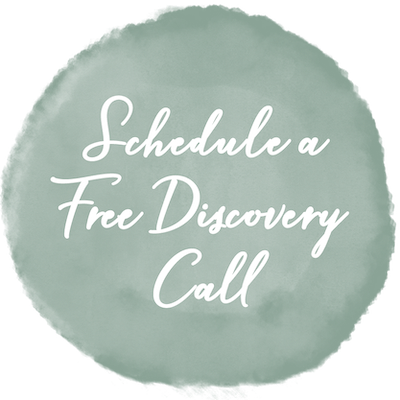Over the years of much therapy and many self-help books, the way I speak to myself in my head has become much more apparent to me. It has also become apparent to me how much power these words have over my mood, perspective, and ultimately actions.
It’s amazing how obvious the hurt feelings can be when it is someone else talking to us in a harsh way, yet how little we are aware of that hurt when it is ourselves doing the inner talking.
When I first became aware of how the way I spoke to myself could transform my experiences and help me in my eating disorder recovery, I felt like I had discovered a superpower.
 All of a sudden I realized that I had the ability to make myself feel better internally rather than needing to spend so much time and energy trying to change my external circumstances. I realized I had found a way to soften my perfectionism as well, since with an inner dialogue of self-compassion I would no longer need to try so hard to avoid every possible mistake in order to avoid the excruciatingly painful backlash from my own mind.
All of a sudden I realized that I had the ability to make myself feel better internally rather than needing to spend so much time and energy trying to change my external circumstances. I realized I had found a way to soften my perfectionism as well, since with an inner dialogue of self-compassion I would no longer need to try so hard to avoid every possible mistake in order to avoid the excruciatingly painful backlash from my own mind.
With practice, I began using this ‘positive self-talk’ more and more to help me cope with the negative thoughts and feelings I had about my body, how terrible I felt when I had to eat a new food in treatment, and when I would get a less-than-perfect grade on an exam.
My Introduction To Self-Compassion During Eating Disorder Recovery
I was first introduced to the concept of ‘positive self-talk’ when I was thirteen and in residential treatment for my eating disorder for the first time. I had a wonderful therapist there.
I continued to be drawn to this concept, and over the years have read many books on it that gave me further tools and practices to cement it further for me.
Some of my favourites books on it are:
- Self-Compassion: The Proven Power of Being Kind to Yourself by Kristin Neff
- The Mindful Path to Self-Compassion by Christopher Germer
- Non-Violent Communication by Marshall Rosenberg
- Radical Acceptance by Tara Brach
- True Refuge by Tara Brach
The Power Of Self-Compassion In Self Growth
I believe our ability to be self-compassionate with ourselves, to connect with our hearts and to use that kindness, empathy and compassion for ourselves like we do so often with others, is at the basis of all deep personal change that we want to make happen for our higher good.
I believe that it is so hard to change from a stance of hating and beating up on who we are right now.…I have come to think of it like an inner child, and this metaphor has really worked for me.
I imagine that if I had a child, and wanted to help them change a behaviour pattern that was making them unhappy or not serving them, wouldn't the first step be to help them feel safe enough to open up and be honest with me about where they were right now and why they were doing what they were doing? I thought, how likely would that child be to open up if they were always met with criticism and judgment that who they are right now isn't good enough?
I couldn't imagine how a child in that environment could truly open up and feel able to take guidance about changing something difficult and vulnerable.
Likewise, it felt the same within me.
I realized that I needed the scared part of myself that was clinging onto old behaviours to know that they were accepted by me just the way they were, and that I only wanted to change out of self love and knowing it would be better for our long-term happiness and wellbeing.
Then, the part of me clinging onto old behaviours could open up about why it was so hard to change, and the part of me that wanted change could speak to it with self-compassion, understanding, and even acceptance.
I think deep down part of us knows we’re never wrong or bad for how we are, that we’re all just trying to do our best with what we have and what we know. And so when this isn’t recognized by others, or ourselves, we cling to our old behaviours, not wanting to go along with the idea that we need to change to be good enough.
True enough, once I started relating to myself with more compassion rather than ridicule and disgust, the part of me holding onto old behaviours felt safer in exploring the idea of why, and how, to begin giving them up and looking for new alternatives to feel safe.
It can be so exhausting waging an inner battle with ourselves, especially given how much energy change can take. Self-compassion is a wonderful, transformative shift to make.
I am so far from being perfect with this, and so far from where I’d love to get to with it.
I wish every time I made a mistake or did something I wish I hadn't, that my automatic response would be one of understanding and self-compassion. However, this response does happen quicker and more often as I continue consciously practicing it, and even if it doesn’t happen right away, I can usually eventually get myself there. And it’s amazing to notice the inner softening and peace that comes when I do.
If you resonate with this concept and would like to learn more about self-compassion and how to begin implementing it more in your own life, the book I recommend starting with is the one by Kristin Neff called Self-Compassion: The Proven Power of Being Kind to Yourself. I also love her website www.self-compassion.org, which is full of more information on self-compassion, practices and guided meditations, and even an online test where you can assess your current level of self-compassion and see how it changes over time.
You can also hear her speak about self-compassion, what it is and how it can be so powerful, and how it differs from self-esteem in this wonderful TEDx Talk:
Journaling Prompts:
- Can you remember a time when you wished you were different in some way, for your own higher good? Not in the sense of wanting to change so that you could conditionally accept yourself or win others’ acceptance, but in a way that you felt would be good for your wellbeing? For me, an example of this was wanting to feel more authentic around others and to care less about making them like me.
- How did you talk to yourself about wanting this change?
- If you’re like me, it was with some harshness and not with a spirit of self-compassion, and this is so normal. How did wanting to change from this approach make you feel?
- In what ways do you think personal growth is facilitated when we can approach ourselves with more compassion?

Support For Your Journey
If you feel you could use more support on your eating disorder recovery journey I would love to connect with you. Contact me to book a free video discovery call so that we can explore if working together would be a good fit. I would love to hear from you.












